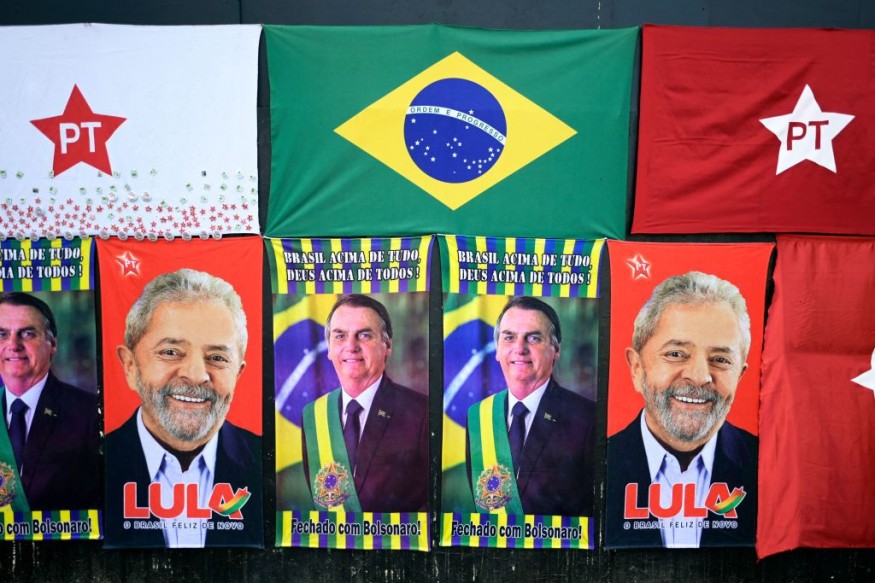Brazil: Rising Misinformation Ahead of Presidential Election Confuses Brazilian Voters

Voters in Brazil are being bombarded with online misinformation less than a week before they cast their vote for the country's next leader.
According to Associated Press, it is falsely claimed on social media that Brazil's leftist presidential candidate, Luiz Inacio Lula da Silva, intends to shut down churches if elected.
There are also rumors that Lula favors allowing men to use the restrooms in public schools close to young girls. They also claim erroneously that right-wing President Jair Bolsonaro confessed to cannibalism and pedophilia in his comments.
Politics in Brazil are reportedly being swirled in a way that is like how politics in the U.S. have been stirred up by false and politically motivated rumors spreading through social media.
Last week, Brazil passed what some analysts call the country's youngest speech restrictions because of the flood of false news.
Rumors that are not real and propagated for political objectives are circulating on social media in Latin America's largest democracy, shaking up Brazilian politics in the same manner they have shaken up U.S. politics.
Due to many false stories, Brazil put in place what some experts call the strictest speech rules in the country's young democracy.
Brazil Will Ban 'False or Seriously Decontextualized' Content Ahead of Presidential Election
Brazil's top electoral authority, the Superior Electoral Court, said on Thursday that "false or substantially decontextualized" content that "affects the integrity of the electoral process" would be prohibited. The court may act without a request from the complainant or the prosecutor.
Social media companies like YouTube and Meta, the owner of Facebook and Instagram, will have an hour, much less time than before, to remove problematic information in the days leading up to and after the second round of the election on October 30.
Al Jazeera reported that all of the social media giants had yet to respond. If a platform does not comply, it may be penalized up to $28,000 per hour or be blocked on Brazilian servers for up to 24 hours.
According to Supreme Court Justice Alexandre de Moraes, the electoral tribunal's president, the "aggressiveness of this information" and hate speech justifies the measure.
Decision to Battle Misinformation Draws Complaints From Right-wing Brazilian Voters
Supporters of Jair Bolsonaro were outraged by the initiative, and many internet law and civil rights experts were worried about it.
They said it was a dangerous, authoritarian expansion of power that could be used to silence legitimate points of view and change the outcome of the presidential election.
Under the measures passed last week, the elections chief, who is now Moraes, can order the immediate removal of content that he believes has violated previous takedown orders.
As a court justice, Moraes put some of Bolsonaro's supporters in jail for what he said were attacks on the democratic institutions of the country and ordered investigations into the president as a court justice.
He may have been the best check on Bolsonaro, who has been attacking the press, the courts, and the country's voting system for a long time.
However, Moraes has made people worry that his attempts to protect the democracy of the country have made it weaker, the New York Times reported.
"It's a very complicated balancing act," said Philip Friedrich, an elections and technology expert at Freedom House, an American organization that promotes democracy growth.
"Trying to protect the integrity of Brazil's democratic institutions and people's right to free expression while also keeping people safe online," he added.
READ MORE : Brazil: Jair Bolsonaro Ally Attacks Police While Resisting Arrest, Surrenders After Hours-long Siege
This article is owned by Latin Post.
Written by: Bert Hoover
WATCH: Brazil's Presidential Election Polluted by Misinformation - From FRANCE 24 English
Subscribe to Latin Post!
Sign up for our free newsletter for the Latest coverage!

















